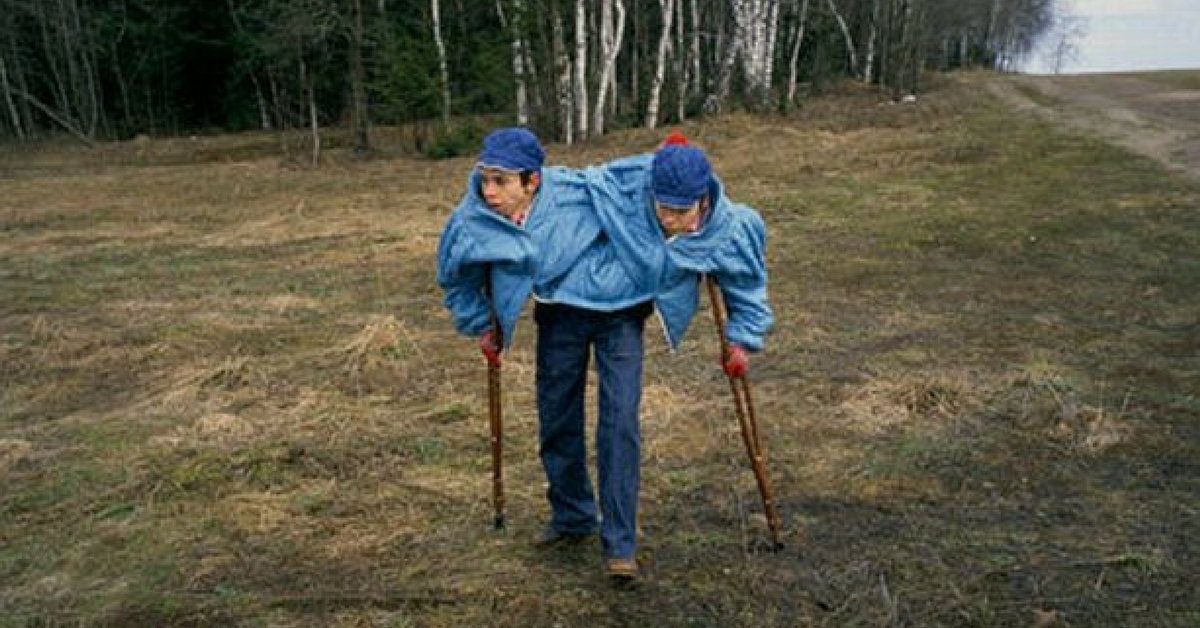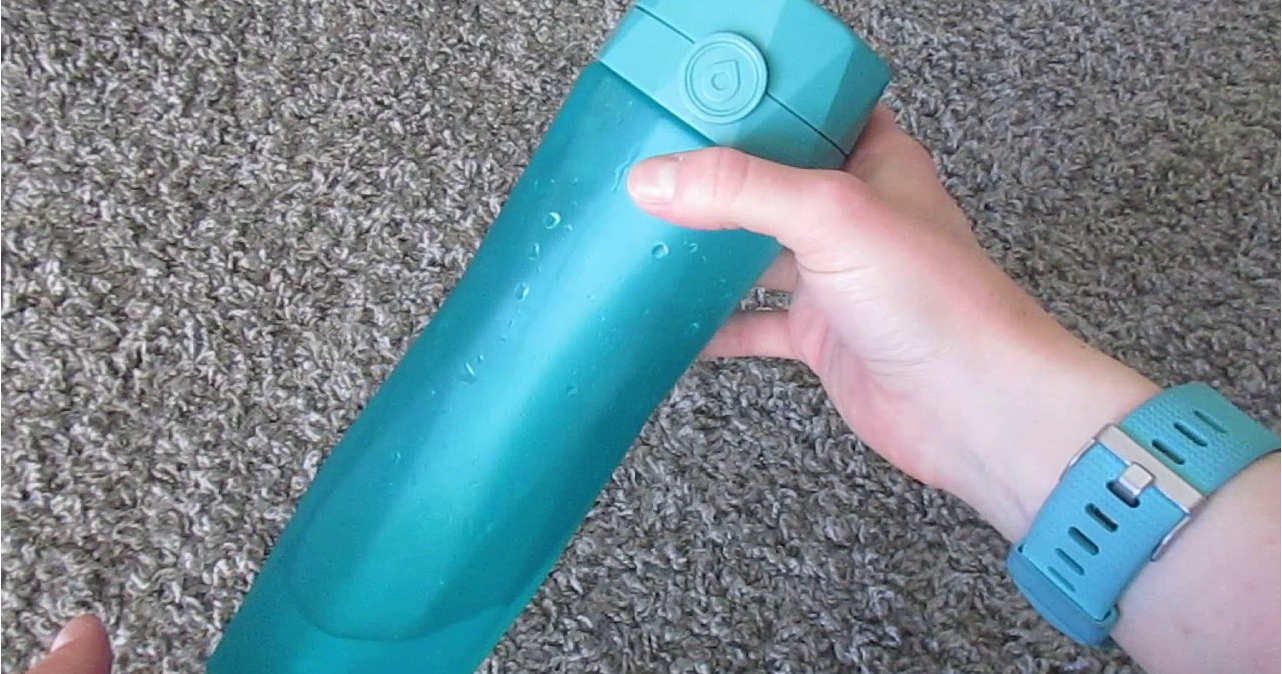Being a conjoined twin comes with a flurry of physical, mental and emotional challenges.
Growing up in Moscow, Masha and Dasha Krivoshlyapova were born in 1950 with two heads, two torsos, two arms and one leg each. They also had a vestigial limb at the back. The twins were taken from their mother at birth and spent the rest of their lives in institutions run by the state.
British journalist Juliet Butler developed a close personal relationship with the twins over a 15-year period while she was living in Moscow with her Russian husband and their children. She first saw the pair in 1988 when they made a plea on TV to be moved to a different institution. The twins agreed to meet with the journalist because she was a Westerner and thought that she could help their situation. Eventually Butler helped Masha write an autobiography, which was published in the year 2000. In it described the years of torture endured by the twins and the constant battle between Masha and Dasha to assert their individuality. What resulted was a heart-wrenching detail of two mismatched souls trapped in a conjoined body.
Their Birth
Their mother didn't know that she was going to be giving birth to twins. After she delivered the babies by cesarean section, she was told that she gave birth to a mutant and that it was going to be taken away from her.
In secret the night nurse brought the twins to meet their mom and she instantly fell in love with them and refused to sign away her parental rights. Doctors then told her the twins died of pneumonia and that's when they were whisked away to a pediatric institute. The twins were told nothing of their birth mother or the fact that they had two brothers.

Life in the Institution
Masha and Dasha shared the same blood system but had separate nervous systems which peaked the interest of scientists who wanted to know more about the roles of each. Since they had separate nervous systems it meant that one could get ill, while the other remained fine. During their childhood, one twin contracted measles and the other did not.

Scientists wanted to know how the body would adjust to conditions like sleep deprivation, extreme hunger and extreme temperature change. Tests were conducted on the twins to see how one's environmental change affected the other. These tests went on for 12 years.
Over the course of their lives, they lived in five state-run institutions. The worst was a Home for Veterans of War and Labor. Butler visited their room that was in a building behind a high wall with barbed wire and guarded gates. In their tiny space, they had a single bed for the two of them, a small toilet and a sink stuck to the wall. To think they spent 20 years in that place blew the journalist's mind.
In 1988 their appeal on national television was successful and they were moved to a place with greater living conditions which brought luxuries of a television, an Atari computer, and a music cassette player.
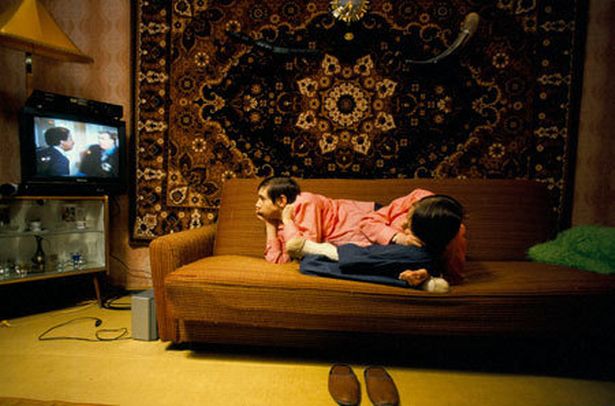
Different People, Same Body
When they first agreed to meet with Butler, each sister had a different motivation. Dasha was inquisitive and intelligent and she wanted to know about life in the West and her experience living in Russia. Masha on the other had wanted to use the journalist to buy Western goods from the special shops that were reserved for foreigners.
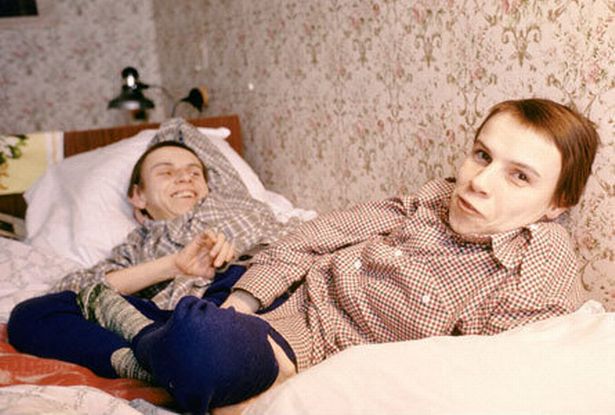
During Butler's first meeting with the sister, Masha was chatty and charming, cracking plenty of jokes during their conversation. Dasha on the other hand was quieter. Butler later learned that Masha was self-centered and egotistical, who was charming even when she was being a bully. Dasha on the other hand was kind, generous, gentle and quiet. While Masha enjoyed being special, she also didn't care what people thought of her, whereas Dasha cared tremendously. She hated going outside, especially when Masha would shout at people who would look at them.

Dasha was a very feminine, romantic and sexual woman. She ended up falling in love with Slava, a boy who lived at the School for Invalids, where they were living. Masha wouldn't let them wear any makeup and in spite of Dasha wanting to be intimate with Slava, Masha wouldn't allow it.
Offer to be Separated
One day in the late nineties, a letter from a British surgeon who specialized in separating conjoined twins came and offered to operate on them.
"Dasha glanced across at Masha, her eyes full of hope, but Masha, looking straight ahead, immediately said "nyet". And that, as Dasha would say, was that," Butler said.
Surgical procedures continued to improve and doctors continued to offer to separate the women, but they continued to decline.
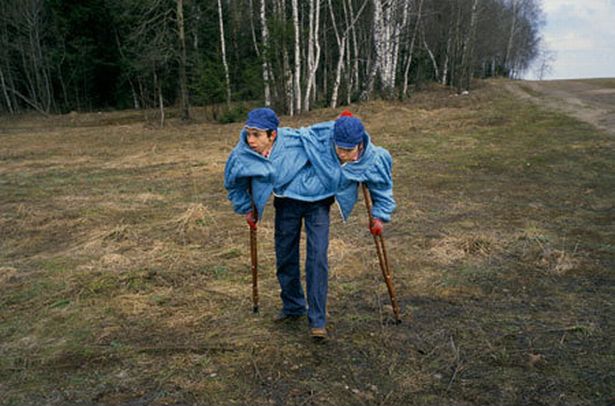
Later in Life
Despite all the hardships they faced in their lives, Masha always found a way to enjoy herself.
As their lives changed, Dasha gradually began to assert herself and Masha stopped beating her sister. They became much more at peace with themselves and started having fun together. They finally came to love each other on a deeper level.
After publishing their book in Germany, Austria and Japan in 2000 they made a decent sum of money, but it didn't change their lives tremendously. They bought things like foreign food, treats, a computer and cigarettes. They would keep the cash in their safe of the state home, until it went missing after their death.
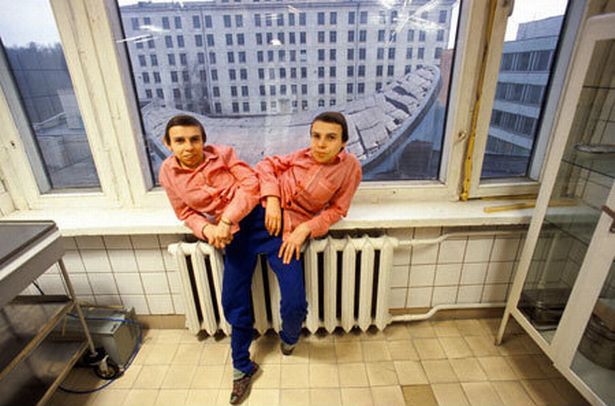
The twins died in April 2003 at the age of 53. Masha had a heart attack and refused to get medical help. She ended up dying 17 hours later. Everyone told Dasha that Masha was just asleep. The toxins then were transferred to her sister which ended up killing her another 17 hours later.
At the time of their death, they were the oldest living conjoined twins in the world.
"Dasha always dreamt of living in a world in which people with visible disabilities went as unnoticed as those without. I hope that in telling her story I can bring that tolerant society a little closer to reality," Butler said.
